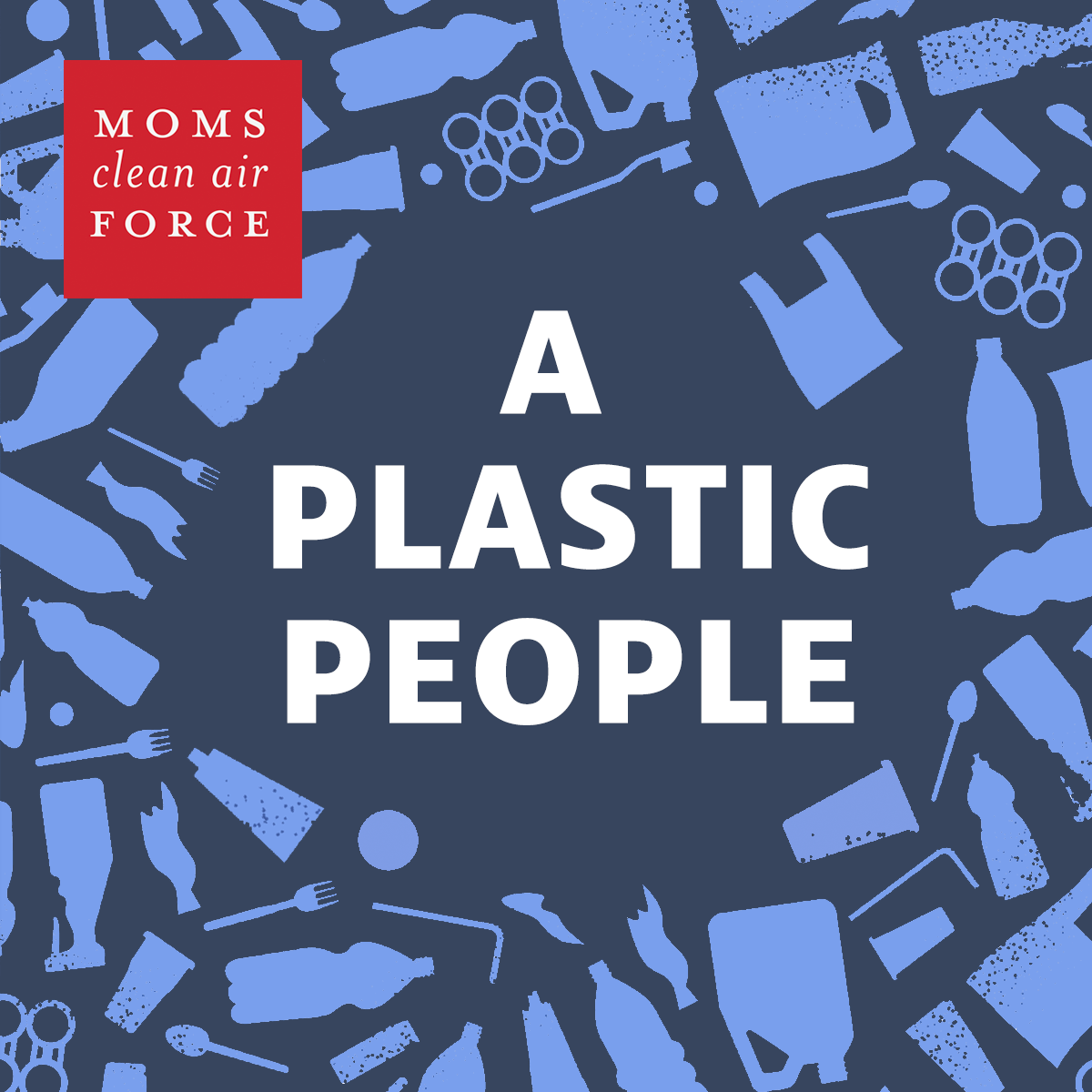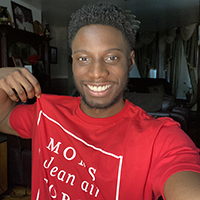
LISTEN TO "A PLASTIC PEOPLE" PODCAST
 This was written by Osasenaga Idahor:
This was written by Osasenaga Idahor:
I feel guilty about how little I knew about plastic. I am a rising junior in college at Harvard, a pre-med student majoring in environmental science and public policy, and this summer, I’ve been an environmental health intern for Moms Clean Air Force. Though I’m passionate about environmental health, I had so much to learn about the health and climate change impacts of plastics. But once I realized I was not alone—most people are unaware of the dark side of plastic production—I knew what I wanted to do this summer. The opportunity came following the February train derailment in East Palestine, Ohio, when a Norfolk train carrying feedstocks for plastic and other petrochemicals derailed threatening the health of an entire community. My colleagues told me that I could work with the Moms staff in Ohio to collect mental health storylines and underexplored narratives in East Palestine.
After hearing the initial idea, I confidently told my colleagues that I wanted to create a podcast for Moms about what I was learning. My confidence was based on my experience as host of my own podcast, The Climate Doctor (no MD). But the podcast, A Plastic People: Petrochemicals, Climate Change, and Our Health: project was a unique challenge. I was unprepared for the taxing emotional work of discussing the impact of plastics and the petrochemical industry. With my colleagues’ support, I used a mental health and health equity lens to inform and encourage people who might be unaware of the dark side of plastics and the petrochemical industry. What I learned was much larger than the story of East Palestine.
In the creative planning for the podcast, I asked myself, “What does it profit us to keep using plastic?” I wanted to show that although the petrochemical industry has made billions of dollars in profit from its products, the economic profit is minimal for poorer communities and communities of color, where the industry’s facilities are often located. The discussion of a profit for these communities is even less appropriate considering the enormous costs to their health, and the increasingly urgent climate crisis. Insatiable corporate greed means that the petrochemical industry uses its influence to value money over people and our planet. But together, we have the power to correct the conversation so that we start valuing people and our planet over money.
As I neared the end of my internship, I wanted to share the biggest lessons I learned from researching, writing, recording, and editing for the podcast. So, here are my takeaways from each episode of the Moms Clean Air Force podcast, A Plastic People: Petrochemicals, Climate Change, and Our Health:
Episode 1: Plastics are everywhere. Manufacturing plastic is harmful because it is a heavily polluting process that contributes to climate change. Poorer communities and communities of color bear the brunt of this pollution.
Episode 2: Fossil fuel extraction and refining facilities make people sicker by releasing toxic chemicals and climate-warming greenhouse gases. We often overlook the impact of living near these facilities on communities’ mental health.
Episode 3: Mishaps with “bomb trains” like the one that derailed in East Palestine are not unpredictable accidents. They’re preventable failures that create sacrifice zones–areas that have been polluted or disadvantaged for the sake of wealthier communities.
Episode 4: The petrochemical industry has lied to us for generations. The myth of recycling has been their most effective strategy to deflect blame.
Episode 5: You need a strong sense of perseverance to take care of your mental and emotional health while fighting against plastic pollution. Everyone is needed in this fight.
In closing, I can never see plastics the same way again. I must speak up about the rampant use and disposal of plastic in healthcare, even when the alternatives are unclear. And I want everybody to see plastic for what it truly is—an unnatural substance that enables our modern conveniences at the expense of our health.
Please listen and share the podcast with friends and loved ones. We all need to know what the consequences are of becoming “A Plastic People.”




